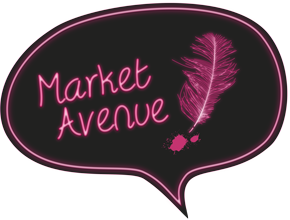
01 Mar Brand representation: the importance of defining language
Brand representation: the importance of defining language
You probably know already how important the all-encompassing “brand” is when defining the success of a company. Not only does a “brand” define who and what your business represents, it can be one of the ways to ensure your company is distinctive, unique and sets you miles apart from your competitors.
It is especially significant when communicating effectively with your target audience. How easily a customer can relate to a brand will determine its ultimate success or failure.
A reliable brand is one of consistency. Not only does an steadfast brand establish your company identity, it also ensures a healthy, long and loyal relationship with your audience.
Visual representations such as logos, images, website design and marketing materials are the obvious aspects of your brand that are relatively easy to define. The language implemented to portray your company can be a little more tricky. Plus, it’s often overlooked or dismissed. And to us, that’s a crying shame as your brand language helps to define everything about a company, the products and services on offer, the ethos of the employees and the culture of the customers.
Let’s face it, if the language isn’t right, the most creative design in the world won’t matter one iota.
 Did you know that when we talk with someone in everyday life, we automatically adjust how we speak in accordance with whoever we’re speaking to?
Did you know that when we talk with someone in everyday life, we automatically adjust how we speak in accordance with whoever we’re speaking to?
Of course you do; you know that you talk to your work colleague differently than you would to your best friend. It’s called “Audience Design” or “Speech Accommodation” and it’s our ability to modify our speech style toward or away from the perceived style of the person we’re talking with.
Brand language requires something similar, in that you have to adapt your register and your tone of language in accordance with what you think your audience wants to hear. Unfortunately, unlike everyday life where you can adapt your speech continuously depending on who you’re chatting with, your brand language must be consistent. At least with the individual customer segments you need to address.
The chosen style of language needs to be consistent across all marketing channels including:
- Social media
- Website
- Blogs
- Leaflets
- Email campaigns
- Brochures
- And many more…
Inconsistency in language, like all visual branding including a logo and the use of colours, will result in unfamiliarity and mistrust. It can be construed as a break in character. Consistency in the use of your language will solidify your company as a credible one.
So what tone will you choose? And how will your brand be perceived?
- Serious?
- Silly?
- Funny?
- Reliable?
- Technical?
How you choose to position your use of language, will depend on the audience and their perception.
To simplify things, we’ve broken down brand language into two categories: formal and informal…
Formal Language
 A lot of businesses tend to take a formal approach to the language used and it does make sense as an approach. After all, ‘formal’ holds connotations of ‘professionalism’ and ‘seriousness’ – why wouldn’t businesses use a formal tone?
A lot of businesses tend to take a formal approach to the language used and it does make sense as an approach. After all, ‘formal’ holds connotations of ‘professionalism’ and ‘seriousness’ – why wouldn’t businesses use a formal tone?
Again we stress, it depends on the target audience. A formal approach to language tends to be quite technical, often embedding acronyms and jargon that is industry-specific. The use of this rhetoric makes the assumption that readers are aware of, and to some degree are knowledgeable about, the technical aspects of the product/service/subject you are discussing.
This may instil a sense of trust, in that your language suggests you know your service inside and out, but it may also alienate them. It may sound confusing to someone who is new to the subject, even if they are interested in learning more. It could appear too boring, showing no emotive elements for the reader to relate to. A formal business can also be perceived as characterless… and who wants to deal with someone with no personality?
On the other hand, if you know your target audience is extremely knowledgeable any number of technical references is completely acceptable. See what we mean about the importance of audience? It’s imperative to get the balance right.
Informal
 If ‘formal’ as a category seems pretty black and white, ‘informal’ most definitely has a few extra grey areas. Different levels of informality in language can be adopted from using risqué humour to a subtle yet casual approach. Once again, it depends on how you want your audience to perceive your business that will define where you land on the formal-informal spectrum.
If ‘formal’ as a category seems pretty black and white, ‘informal’ most definitely has a few extra grey areas. Different levels of informality in language can be adopted from using risqué humour to a subtle yet casual approach. Once again, it depends on how you want your audience to perceive your business that will define where you land on the formal-informal spectrum.
One aspect of using informal language is that it can personalise your brand, developing a positive company character. A relatable, friendly brand can be more approachable and establish a stronger sense of trust. Touching on locality within the use of brand language can impact favourably for companies. Utilising local colloquialisms, favourable slang words or referencing positive characteristics of the area can help an audience to warm to what you’re trying to say. This ‘sociolect’ approach also helps if you deal with customers face to face.
There is a danger when taking this route that, like many aspects of social life, language is subject to change. One week a term may mean one thing and the next week it’s changed completely. Again, make sure you research the language being used to ensure the right balance so that nothing is detrimental to brand perception.
To conclude… no panic was intended but we hope we’ve highlighted a few advantages and disadvantages to the importance of choosing the right words when positioning your company through brand language.
All we can say is that you know your business better than anyone. Decide how you want to be perceived by your target audience and choose what rhetoric and tone of language will best achieve this desired perception.
And if you need a little help to make the language interpretation appropriate and engaging, call us today for an informal chat on 01543 897121.



Sorry, the comment form is closed at this time.